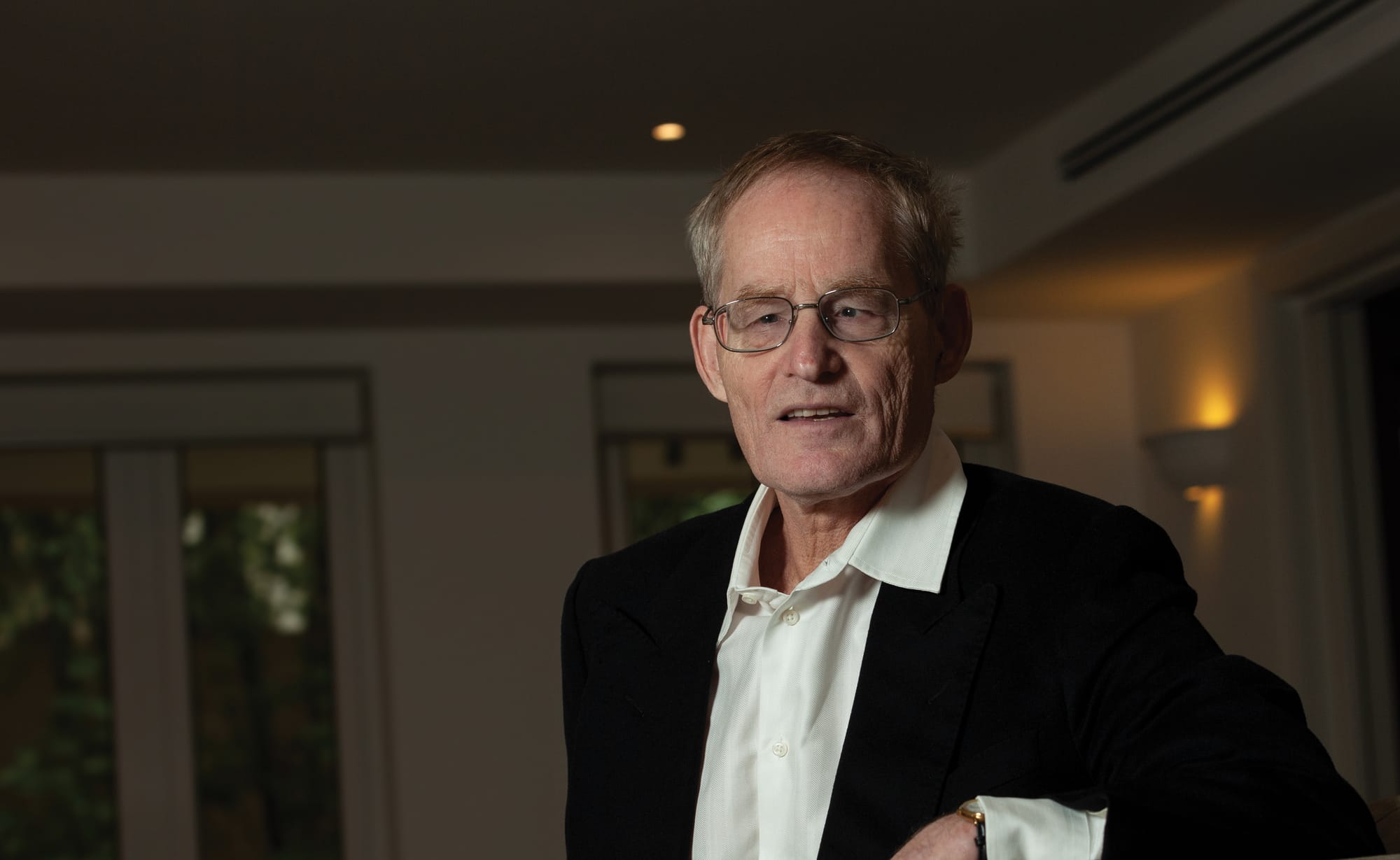
Andrew Marks makes no bones about it: the law’s been good to him. As a partner in one of Australia’s leading commercial law firms, he enjoyed the financial and social standing that such a career delivers. But age, experience and an ongoing health issue also found him reflecting more broadly on how well the law serves people and society.
He was thinking about this when he read about a large bequest made to Monash University by an alumna, Francine McNiff, in 2015.
McNiff had been a pioneer, becoming the first female and youngest judicial officer in Victoria when, in 1983, aged 35, she was appointed Children’s Court Stipendiary Magistrate. Her extraordinary $3.72 million bequest was used to set up the Francine McNiff Chair in Criminal Jurisprudence and the Francine V. McNiff Scholarship Fund. Each year this supports two PhD students from disadvantaged backgrounds to study criminology.
Her generosity, aimed at assisting successive generations of law students, inspired Marks to follow suit, although, he emphasises, “at a far more modest level”. He also wanted to support the application of law to, in his words, “outcomes other than money”.
“I contacted the Dean, Bryan Horrigan, and through him I was acquainted with the Monash Law Clinics,” says Marks. “These are a fantastic initiative. They make the law about people. Their service helps people who haven’t been able to get legal aid, often because of funding constraints and, quite frankly, it saves lives. The help extended by Monash law students, working under supervision as part of their course, can stop people doing something drastic.”
The clinics had only just been initiated when Marks graduated in 1976 and he missed that experience, so when connecting with their work some 40 years later, he was impressed by their role in engaging the legal profession more broadly with society. He believes the way the clinics expose students to real clients with real crises immeasurably strengthens their professional development.
“That doesn’t mean we want everyone becoming a human rights lawyer, but it opens eyes. It opens perspectives,” he says.
He also considers it adds a more holistic value to a law degree, irrespective of whether someone ends up practising law.
“A legal education teaches you how to think. Taking on real cases at a law clinic is a part of that … it exposes students to a thought process that they wouldn’t otherwise be likely to experience as students.”
Unlocking privilege
Marks says the ethos the clinics have created is very different to his law studies, which directed him, almost automatically, into commercial law as the only real alternative to criminal law and/or family law.
It was an education that also bespoke privilege: “Most law graduates in my era were male and from private schools. Today, by contrast, more than half the students would be women, and the percentage coming from private schools has diminished considerably.
"These would be factors, no doubt, in an increased sense of social responsibility that was definitely not part of the ethos when I studied. But it’s something I’ve gained over time and why I want to give something back.”
"Imagine the impact on a program such as the law clinics if 100 of the graduates from the past 30 years – and remember, there’s been about 9000 graduates over that period – could bequest, say, $20,000."
Marks, who enjoyed a long and successful career as a partner with Corr and Corr (today Corrs Chambers Westgarth), says he usually wouldn’t want publicity, but he hopes that speaking about his decision might encourage others to think about giving back – just as the Francine McNiff story moved him to act.
“In my view, people who have done well, as I have, do have a responsibility to give something back. That said, I know it’s often not easy because there can be family circumstances and other responsibilities to make this a challenge. But if enough people could give back, even a comparatively small amount, it adds up. Imagine the impact on a program such as the law clinics if 100 of the graduates from the past 30 years – and remember, there’s been about 9000 graduates over that period – could bequest, say, $20,000.”
Dean of the Monash Faculty of Law, Bryan Horrigan, says bequests such as that made by Marks are crucial for the clinic’s operations, because the University has guaranteed to every undergraduate law or Juris Doctor (JD) student that they can, if they wish, have the clinic experience.
“So it’s a huge resourcing commitment when you consider the number of students today and the number of supervisors also required. We can’t honour that guarantee unless we are supported by alumni and others,” says Professor Horrigan.
“You also can’t do this en masse. It’s personal, individual, professional training; providing quality legal assistance to a real client.”
Professor Horrigan says students work in groups of six to eight under a supervisor, helping people who are often society’s most vulnerable, who can’t afford a lawyer and who don’t qualify for legal aid.
“That’s thousands of people a year who we’re helping to access justice. It’s an absolutely transformative experience for every student, and this is what Andrew saw and was inspired to support.”
Monash University Law Clinics
In Australia, more than 160,000 people are unable to access legal assistance each year. Monash Law Clinics are an integral part of our commitment to experiential learning, something we pioneered in Australia more than 40 years ago.





